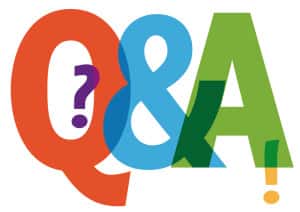 Do you have questions about whether your brushing habits are promoting good oral health? Many patients are fairly certain that they’ve got the basics down (twice daily brushing with a soft-bristle toothbrush and fluoridated toothpaste) but there are some not-so-well-known details that cause uncertainty. Our team is happy to offer up the answers and details you need (and will be happy to offer a demonstration at your next appointment).
Do you have questions about whether your brushing habits are promoting good oral health? Many patients are fairly certain that they’ve got the basics down (twice daily brushing with a soft-bristle toothbrush and fluoridated toothpaste) but there are some not-so-well-known details that cause uncertainty. Our team is happy to offer up the answers and details you need (and will be happy to offer a demonstration at your next appointment).
Questions And Answers: Brushing
Question: Should I brush my teeth and my gums?
Answer: Yes, your dental hygiene session needs to focus on both your teeth and your gums (as well as your tongue – see the next question!). However, when we say, “brush your gums” we are referring to brushing along your gumline, ensuring you use your brush to gently dislodge plaque and food.
Question: Is it important that I brush my tongue during my dental hygiene routines?
Answer: Yes, it is. Brushing your tongue is important because it gives you the chance to remove even more bacteria (as well as food particles) that become trapped on its vast surface area. This will help prevent oral health problems (including bad breath).
Question: Should I focus on brushing the chewing surfaces of my teeth for the majority of my brushing session?
Answer: Optimal dental hygiene includes brushing sessions that focus on all parts of the teeth equally, which means you will brush your chewing surfaces for the same amount of time that you brush the front of your teeth, the back of them, the sides, and the tissue along your gumline.
